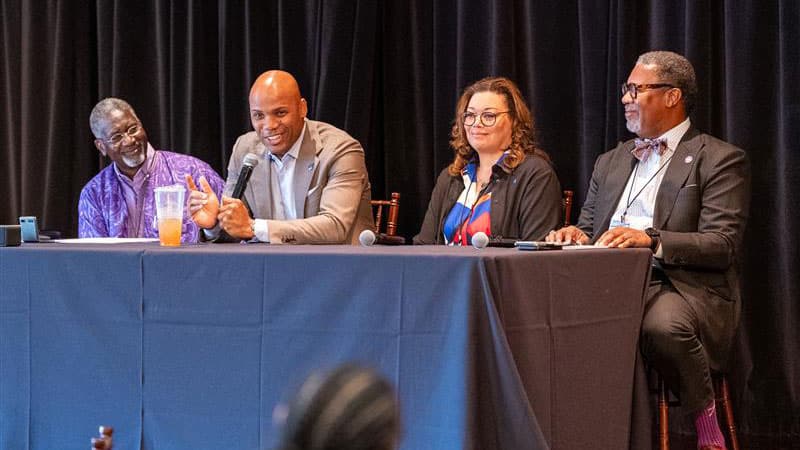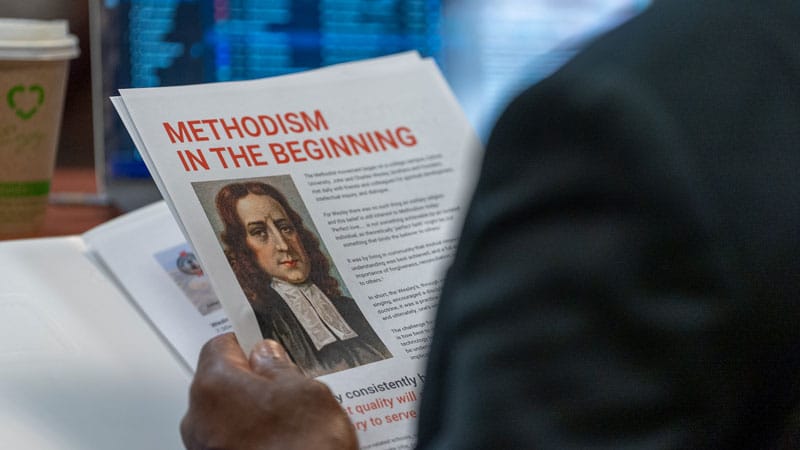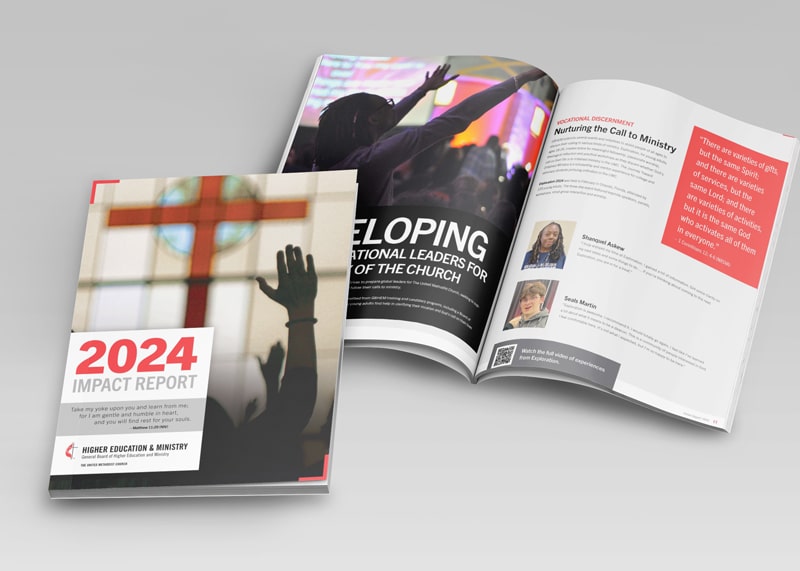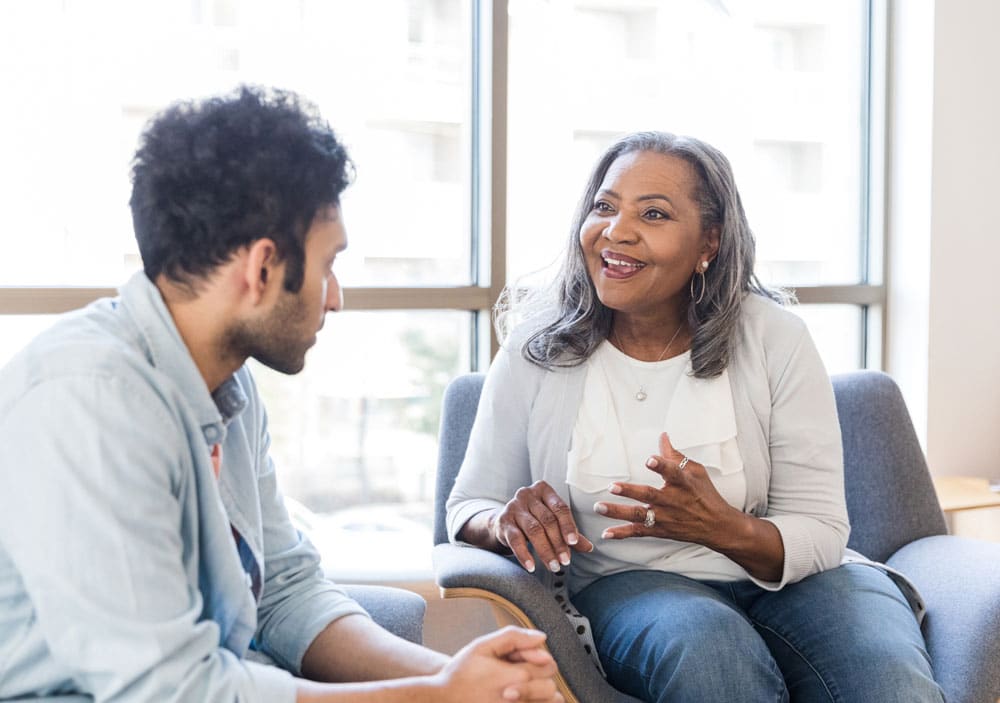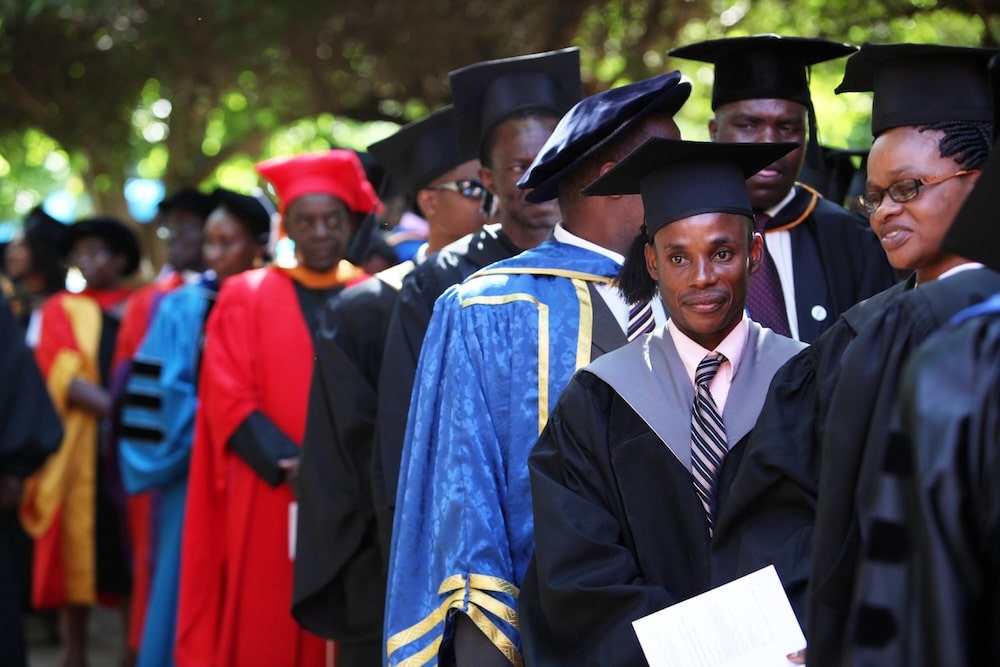Academic Theological Colloquy on Sexuality and Church Unity Aims to Move the Church Forward
More than 70 participating scholars and observers gathered for the academic theological colloquy, “The Unity of the Church and Human Sexuality: Toward a Faithful United Methodist Witness.” Hosted at the Candler School of Theology, Emory University, in Atlanta, Georgia, the event launched with impactful presentations on Friday, March 10 and ended in worship on Sunday, March 12.
The General Board of Higher Education and Ministry (GBHEM) and the Association of United Methodist Theological Schools (AUMTS), with support from the Council of Bishops of The United Methodist Church (COB), partnered to co-host the event with the goal of providing theological reflections and discussion around human sexuality and church unity as a resource for the Way Forward Commission and the church.
Dr. Jan Love, dean of Candler School of Theology at Emory University and president of AUMTS, opened the colloquy with a welcome and devotion. Bishop Kenneth Carter and Rev. Dr. Kim Cape, general secretary at GBHEM, greeted attendees and outlined the purpose of the colloquy.
Touching on the importance of being reconciled, perfect and merciful, Carter said, “We must not allow disagreement over understandings of LGBTQ identity to divide us, and yet we must not settle for a unity at the expense of someone’s dignity or sacred worth.”
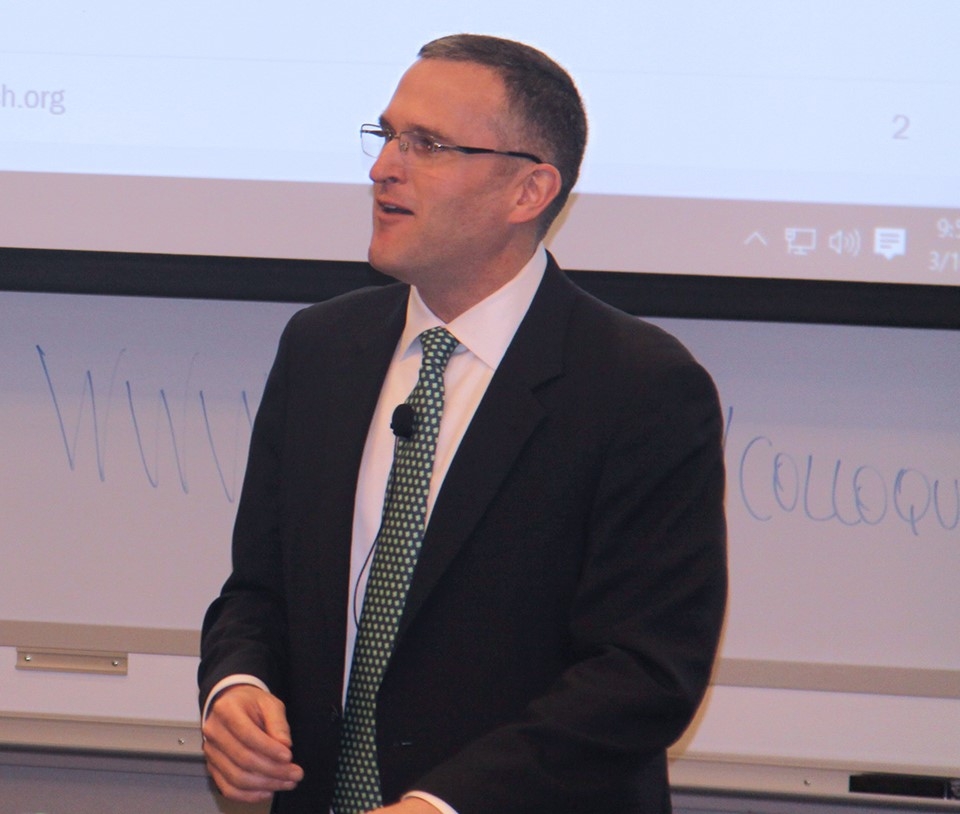
Gregory A. Smith, associate director of research at Pew Research Center, shared statistical data on the views of homosexuality from the U.S. and abroad. Per trend data, Americans have become much more accepting of homosexuality over the last 50 years. Smith demonstrated the shifting acceptance through segmentation of respondents by a range of demographic characteristics, including varying Christian religious denominations and generational divides. Younger generations across all ethnicities and religious denominations have a greater acceptance of homosexuality according to Pew Research’s in-depth data.
“Generational change is not the only reason acceptance of homosexuality has risen,” explained Smith during his presentation. “Even while millennials have buoyed acceptance of homosexuality, we have seen every generational cohort become more accepting over time … We asked supporters of same sex marriage [in 2013] why they have changed their mind and the No. 1 answer we received is because they know someone that is gay … and other respondents recited a belief in equal rights.”
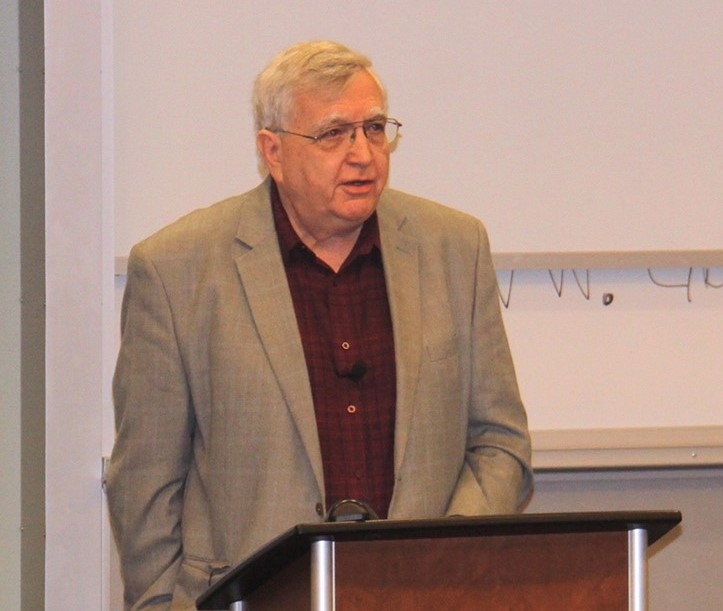
Dr. Charles Wood, retired professor of Christian Doctrine from Perkins School of Theology, the second featured speaker, shared his work, “Wonder, Love and Praise: Sharing a Vision of the Church.” Wood expressed the need for a greater understanding on many levels of our connection, focusing on the saving love of God for all people, the transformational love of God, and the ability of God’s love to create community.
“We need forms of polity that are consistent with our core convictions: that is, forms that honor the radically inclusive scope of God’s saving grace, forms that recognize and build upon the transformative character of that grace, and forms that will serve, rather than subvert, the growth of genuine community,” Wood explained in “Wonder, Love and Praise.” “In that regard, a specifically polity-related Wesleyan concept deserves further attention: the concept of Christian conference.”
During the three-day event, 28 scholars and theologians, representing the 13 United Methodist seminaries and higher education institutions from around the world, were divided into small groups to present their academic papers on topics ranging from “The Clash Between Unity, Inclusion, and Covenant: Lessons from History” to “How Do United Methodists Know a Sin When We See It?”
“I appreciate the prayerful conversations which led to better understanding of the structural, historical, and theological realities at stake as The United Methodist Church discerns its way forward … I pray with all heart, mind and soul that the Way Forward Commission will keep the well-being of our economically disadvantaged churches in mind in its deliberations regarding reconfiguration of the UMC structure so that the poor will be helped and not further harmed,” said Dr. Karen Baker-Fletcher, professor of Systematic Theology, Perkins School of Theology, Southern Methodist University. “Many thanks for a rich and fruitful colloquy. We learned much together and from each other.”
The overarching theme for the reflections presented included a historical and ecclesiastical look at past moments of divisiveness within the history of the church and how the church moved forward through those times. At the conclusion of each day, each small group of scholars summarized the day’s discussions by addressing the following questions:
- Does homosexual practice rise to the level of status confessionis?
- What is the basis of our unity? Unity and uniformity are not necessarily the same.
- What structures would support the answers to these questions?
On the final day, participants were invited to weigh in by sharing their observations and reflections from the event.
“The recent colloquium on human sexuality sponsored by the GBHEM was a remarkable event. It brought together a wide range of voices on a very controversial topic,” said Dr. Kenneth J. Collins, professor of Wesley Studies and Historical Theology at Asbury Theological Seminary. “Though the scholars differed from each other, and sometimes significantly; nevertheless, each was afforded the respect to be heard and taken seriously. What emerged from such efforts was a genuine conversation. That in and of itself was refreshing. I believe that this model that played out at the colloquium was so successful that it should be brought as a gift to the larger church.”
“The collaboration of AUMTS and GBHEM in co-sponsoring this colloquy provided a wonderful opportunity to support the work of the Way Forward Commission,” said Dr. Lallene Rector, president, Garrett-Evangelical Theological Seminary. “We were blessed to receive the rich gift of careful thinking from our United Methodist scholars. We reviewed important moments in Methodist history that included formal splits and efforts to come together over important divisive issues. And, we considered new imaginative possibilities for how we might yet remain a “United” Methodist Church. Perhaps most importantly, we remembered that we are one in Christ. I left the gathering encouraged and with a renewed sense of hope for our future convinced that conversations really do matter.”
Participants and observers wrapped up the three-day colloquy with communion and closing worship led by Carter (sermon), Cape (communion/liturgy), Rev. Dr. Lisa Allen-McLaurin (liturgy), Rev. Dr. Edward Phillips (music) and Rev. Dr. Kendall Soulen (music).
The summarized works of the presentations will be used to create a study guide in spring 2017 for use by the annual conferences and local churches in facilitating discussion on the topic. All final, edited papers presented will be available on the colloquy website, as well as provide content for a book, which will be published in spring 2018. The book will be presented to the United Methodist leaders, including but not limited to the Council of Bishops and the Way Forward Commission.
“We are extremely grateful for the participating scholars who made the colloquy a success. I am thankful for their work in helping us to serve as a resource for our church leadership as they explore future unity of our church,” said Dr. Kim Cape, general secretary at GBHEM. “Through our reflections and focused discussions, we will be closer to discerning God’s way. I pray that the information provided through the colloquy will provide value to the work of the Way Forward Commission and our church as a whole.”
GBHEM intends to host future colloquies around other topics related to the work of the agency in the future.
About GBHEM: As the leadership development agency of The United Methodist Church, the General Board of Higher Education and Ministry’s mission is to lead and connect the educational and ministerial life of the church. Every elder, deacon and licensed local pastor benefits from our training and candidacy programs. Many young adults find help in clarifying their vocation and God’s call on their lives through our leadership and discernment programs. Follow us on Twitter and Facebook: @GBHEM.
Related Posts
DETROIT — Leaders from United Methodist-related institutions, including seminaries and Historically Black Colleges and Universities called for justice, historical reckoning, and a renewed commitment to equity in higher education and society during a Juneteenth panel discussion.
In a joint meeting with the North American Association of Methodist Schools, Colleges and Universities (NAAMSCU) on June 19, the University Senate of The United Methodist Church reaffirmed and deepened its connection with UM-related educational institutions focusing on their United Methodist identity, academic excellence and social justice in higher education.
The General Board of Higher Education and Ministry 2024 Impact Report offers a detailed look at a year shaped by transition, renewed alignment and a deepened commitment to developing transformational leaders for the church and the world.
